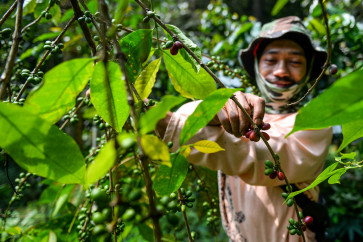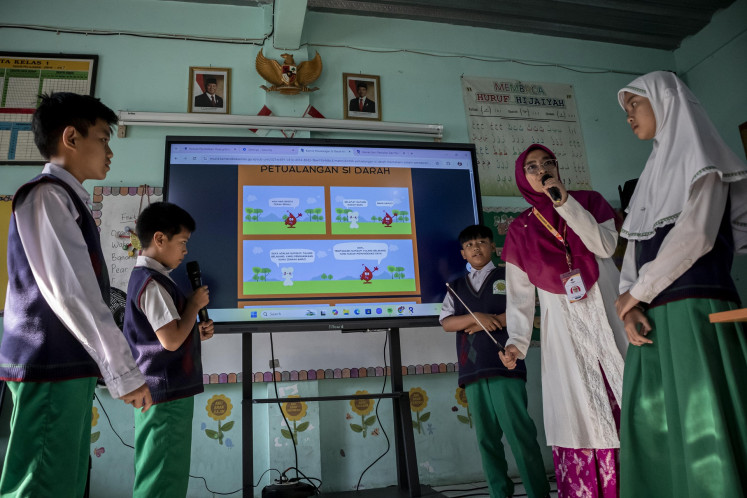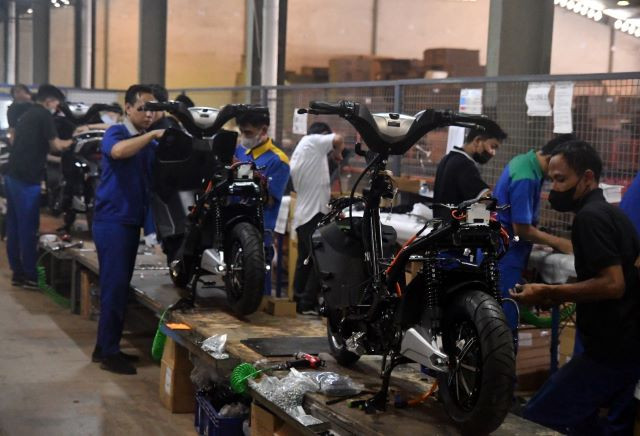New research shows true danger of waste burning in the greater Jakarta area
Research on waste burning shows the extent of the practice and its fallout on public health to be more extensive than imagined.
Change text size
Gift Premium Articles
to Anyone
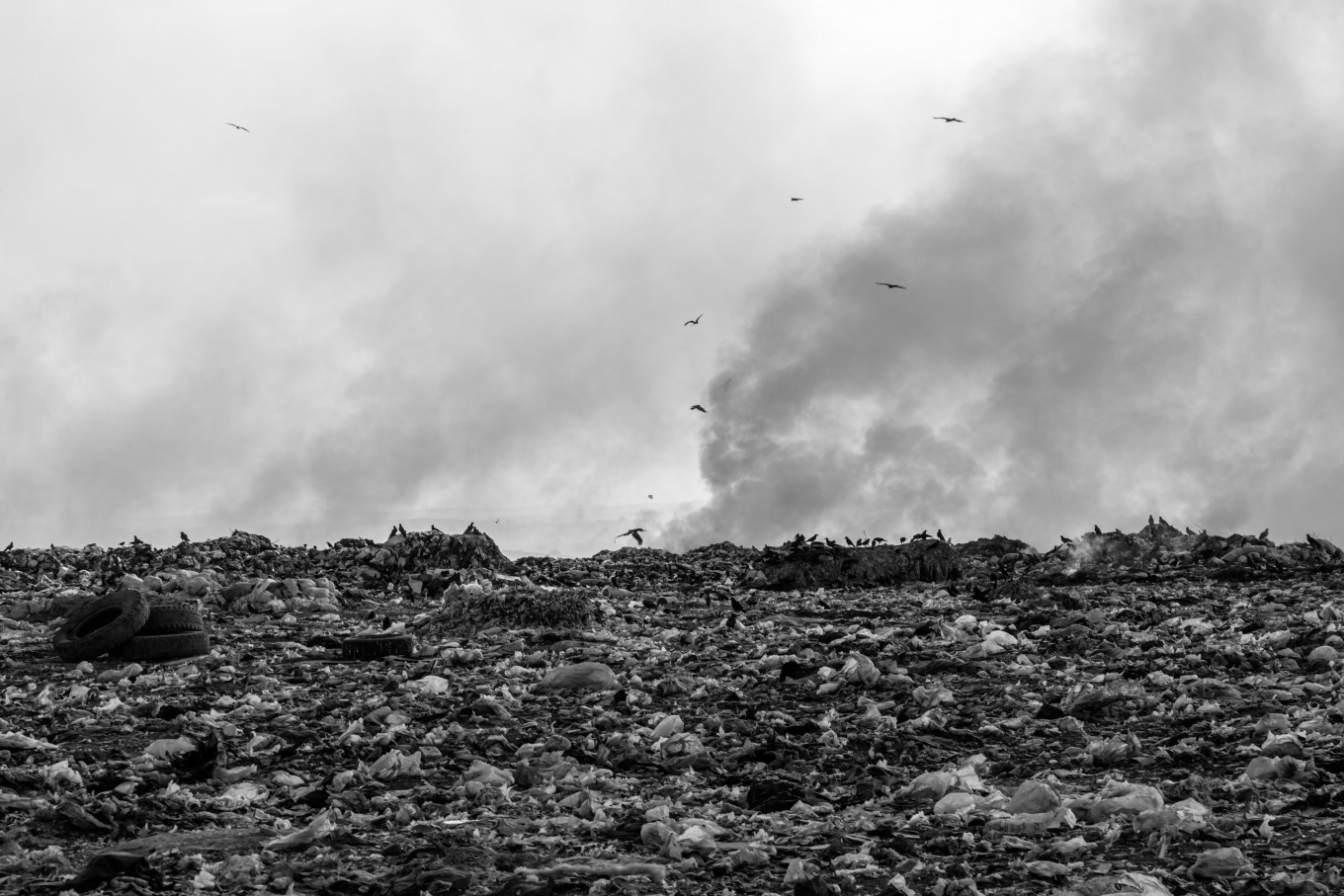
R
esearch on waste burning shows the extent of the practice and its fallout on public health to be more extensive than imagined.
The sight of burning waste is as ubiquitous as it is unwelcome, not least because the flames sting one’s eyes and nostrils, as well as bring about haze that reduces visibility. But recent research by the waste management startup Waste4Change and the Bicara Udara (Talk of Air) foundation revealed that the practice is more than an unwelcome nuisance.
Running rampant
In a recent webinar titled Waste4Change Insight: Menelusuri Aktivitas Pembakaran Sampah Terbuka di Wilayah Jabodetabek (Waste4Change Insight: Tracing Open-Air Waste Burning in the greater Jakarta area), the organizations noted that the rate of waste burning has run rampant, reaching annual rates of 240.25 Gigagrams during the research period of between August 20, 2022 to the end of the year.
“The amount of waste burned in the greater Jakarta area is estimated at 240.25 Gigagrams annually, equivalent to the 108,825 hectares of forests burned during forest fires in Kalimantan. The carbon emissions from the fires are estimated at 12,627.34 Gg, nearly the same as the 14,280 Gg of forest fires in Kalimantan in 2021,” said Waste4Change recycling supply specialist Lathifah A. Mashudi of the findings during a webinar on Feb. 27. “Waste burning from the greater Jakarta area amounted to 9.42 percent of all greenhouse gas emissions in Indonesia.”
She said burning waste was based on a number of short-term benefits, such as the ashes from the waste as fertilizer or warding mosquitoes off at night. But Lathifah maintained that the long-term effects of burning waste outweighed their perceived benefits.
The Jakarta Provincial Administration’s Health Services provisional head doctor Aris Nurzamzami backed Lathifah’s findings. He noted that burning waste releases chemical compounds that are equally dangerous for the environment and humans, as they are carcinogenic in nature.
“A tonne of burned organic waste produces nine kilograms of dangerous hydrocarbons, as well as chemical compounds like carbon dioxide, sulfur dioxide, methane gasses, nitrous oxide and other substances,” he said. “This issue emphasized the need for all stakeholders to maintain efforts to clean up the air, as waste burning contributes to air, water and land pollution, forest fires and climate change.”
The human toll
Aris added that the poisonous and dangerous chemicals can cause illness to those who inhaled the smoke, ranging from cancer to physical and nervous disorders. Lathifah asserted that of the 1432 respondents in the research, “the majority of respondents, many of whom are those between the ages of 18 to 34, were affected by respiratory ailments and eyes irritated by the smoke. Others were afflicted by skin conditions.”
Lathifah noted that those who carried out the practice were individuals who burned waste out of their own free will, those who were ordered to burn waste and business owners.
“The survey found that 61.5 percent of those who burn waste are women, 36 percent of whom are housewives,” she pointed out. “They also made up the largest number of those whose health is affected by this practice, at 77 percent.”
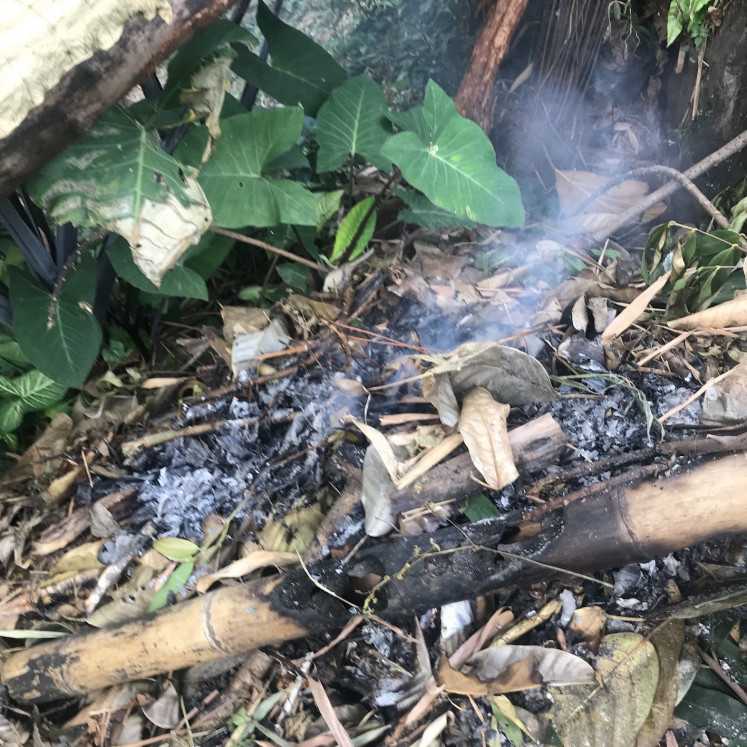
Lathifah said she urged tougher enforcement to deter the practice, as well as raising awareness of its harmful effects on health and the environment.
However, she said the practice was still widespread, due to “accessibility and availability of land to burn waste, toleration of the practice and the lack of waste management services in the area to dispose of trash. Much of the public is also unaware of the harmful effects of waste burning, or the outlawing of the practice.” Lathifah added that its practitioners were reluctant to pay their waste management dues, and viewed waste burning as the quickest, most efficient manner of waste disposal. She advocated the use of safer waste management, including separating waste according to their categories, among them turning organic trash into compost.
While Lathifah said laws and regulations to prevent waste burning were in place, their enforcement requires the active participation of all segments of the public. She urged provincial administrations to improve “the public’s access to waste services and facilities, enforce the ban on burning waste and work closely with communities to prevent burning waste.”
She and other experts urged local units of the Family Welfare Empowerment (PKK) organizations to help enforce the measures, and inculcate the public in health protocols and Clean and Healthy Lifestyle (PBHS) procedures.
The Jakarta Provincial Administration outlawed waste burning under a 2008 law on waste management. While offenders are liable to be fined Rp. 500 thousand (US$32.41) under the law for burning waste and other illegal means of disposing trash, the legislation failed to curb waste burning throughout the capital over the past year, with the exception of the Thousand Islands off Jakarta.



